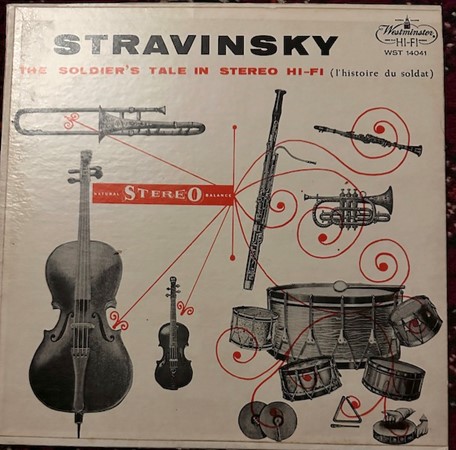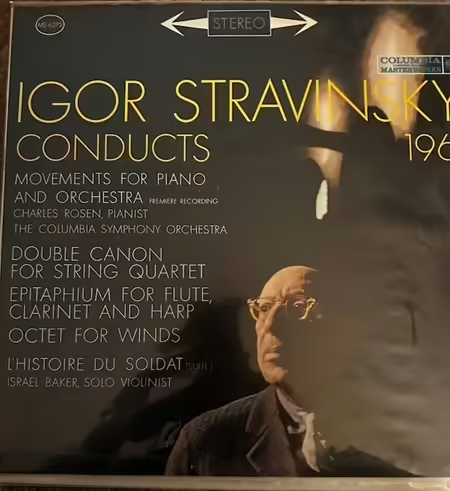Philip's Musings
The Three Analog Heads: Listening notes on Stravinsky – L’Histoire Du Soldat (A Soldier’s Tale)
April 27, 2023
Three of us shared friendship and the love of music for decades. Recently, we have been getting together for our LP music session every week. We would rotate between our three listening rooms each week and pick something we each want to introduce to the others.
Yesterday, we listened to an original six-eye stereo pressing of Stravinsky conducting some of his own works, recorded in 1961 by Columbia.
While you might nit-pick the composer’s delivery as a conductor, it’s interesting to hear how he envisioned the composition performed.
About the album
This was the instrumental rendition, as there is another version with spoken narration. Played by a septet, it’s certainly a diverse selection of instruments, with bassoon, clarinet, cornet, trombone, percussion, double bass & violin.
In 1918, while Stravinsky had never actually heard jazz; his friend, the conductor, Ernst Ansermet, had lent him sheet music to study and Stravinsky eagerly applied his skills to this new musical genre.
The actual story is based on an old Russian folk tale, of a deserting soldier who sells his soul to the devil.
The suite opens with The Soldiers March, a parody of the military. It’s a little dissonant but this suits the story.
The Royal March has a delightful melody; what a curious selection of instruments.
Afterwards we are delighted by Stravinsky’s unique vision of Tango, Waltz & Ragtime – from a fresh & original perspective. Wild stuff.
The soldiers violin is symbolic of both his soul and the devils, as the suite ends with The Devils Dance, the violin theme shows that the devil is triumphant, as he celebrates his victory.
About Listening Experience
The Columbia engineers clearly understood that they were working with a historical cultural document, as they pulled out the stops & gave us a recording of reference quality.
While the strings are only represented by a violin & double bass, there are so many wind instruments that the soundstage is complete & complex with all the different melodies, usually competing with each other, not to mention the percussion thrown at the listener from time to time to assault our ears & senses.
The instruments are vividly recorded and the acoustic instruments are especially faithfully recorded.
This is a piece of music that is worth seeking out. This version of The Soldier’s Tale should be a lot easier to find than the Westminster version (Robert Mandell conducting Ars Nova on Westminster WST 14041), the latter is probably the closest thing to sitting on God’s shoulder on listening to this remarkable music together.


